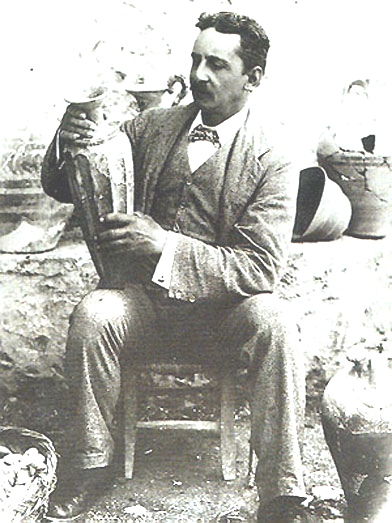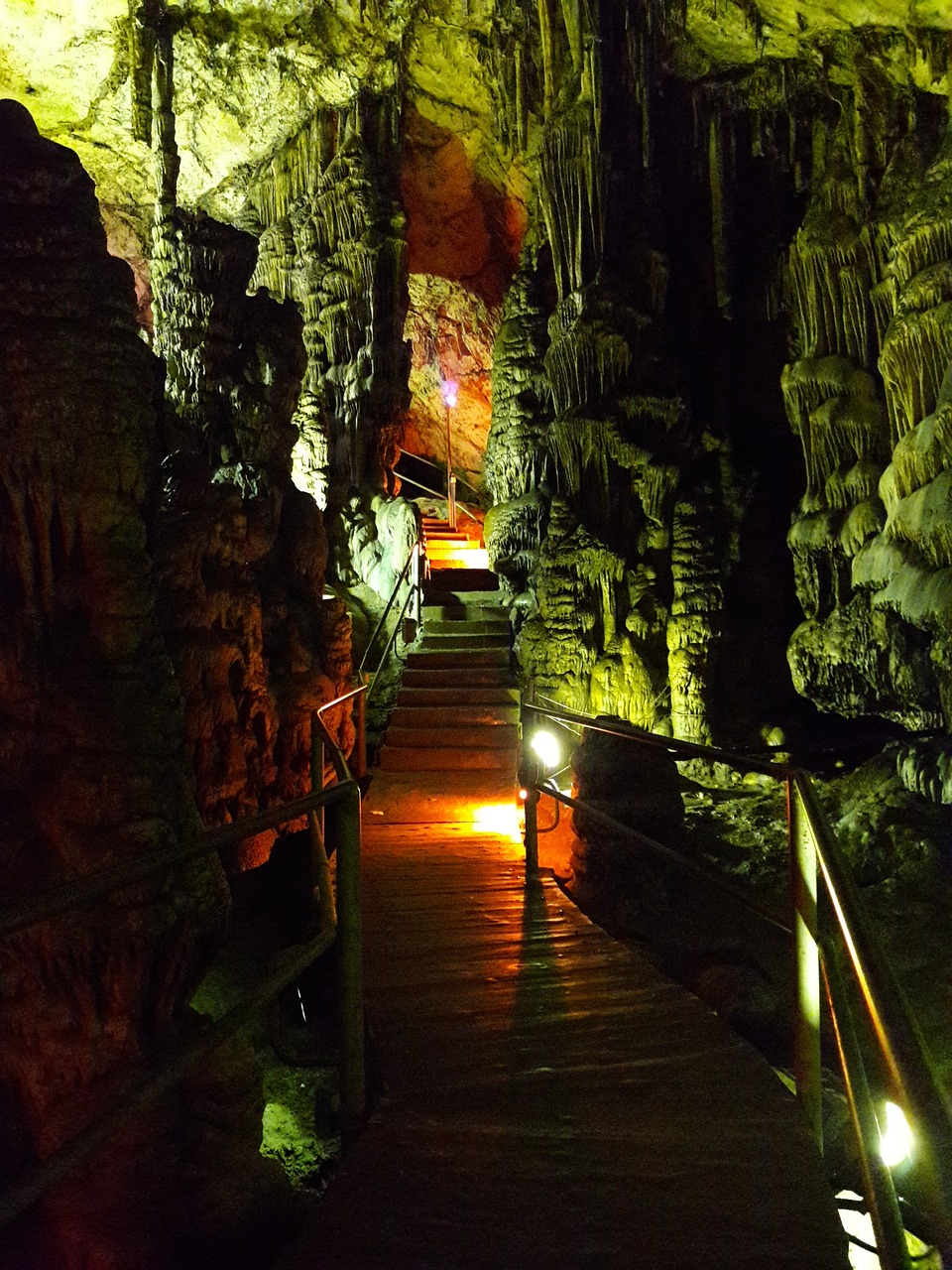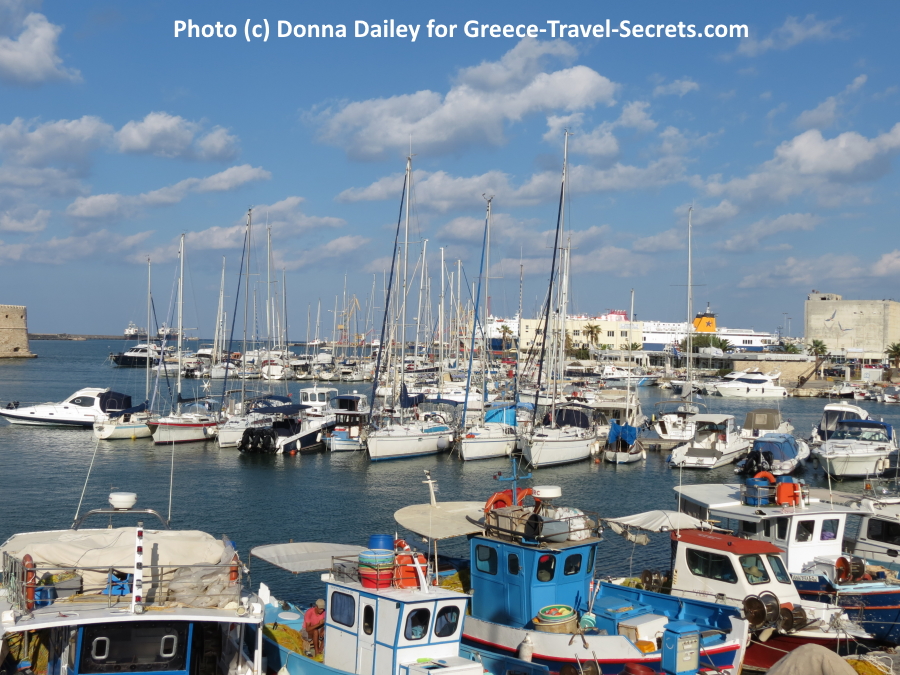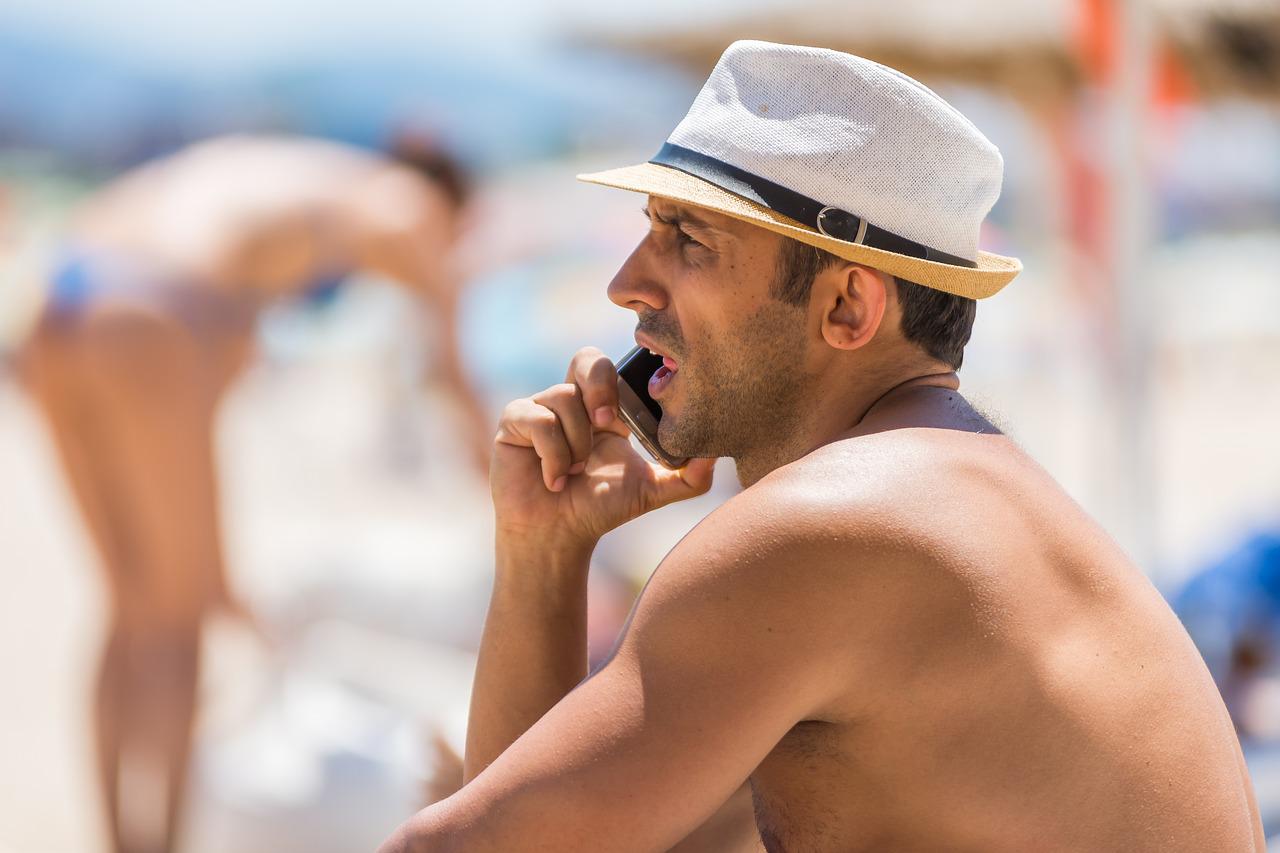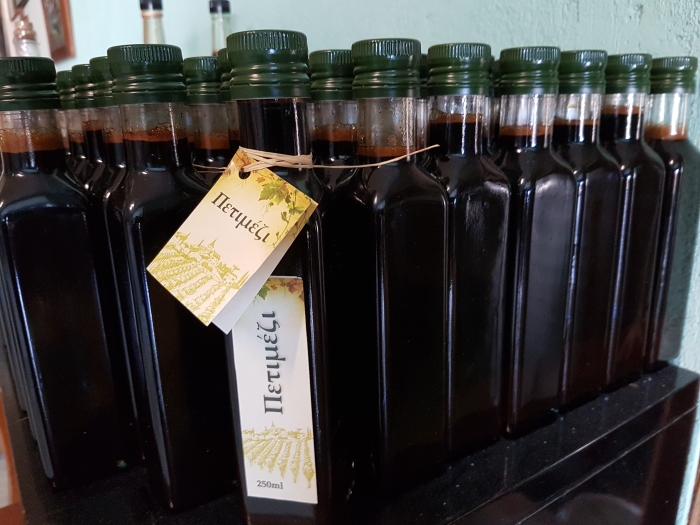Sir Arthur Evans
Sir Arthur Evans is the archaeologist famous for the excavations he made at the royal palace of Knossos on Crete.
The English archaeologist Sir Arthur John Evans (1851-1941) is the man who put Knossos on the map. He was educated at the famous public school, Harrow, and then at Oxford University, before becoming curator of the Ashmolean Museum in Oxford when he was 33‑years‑old: a job he held for the next 24 years. It was while here that he developed an interest in the coins and seals of Ancient Greece, and in particular those of Crete, which he first visited in 1894 in order to learn more.
Sir Arthur Evans' Excavations at Knossos
By 1899 he had begun excavations at Knossos, and quickly unearthed a Bronze Age city and a royal palace which he named Minos after the Cretan King and son of the Greek God Zeus. He called the civilisation Minoan, and while the bulk of the important excavations were done in the first few years of the 20th century, Evans continued work on the site until 1935 - by which time he was 84-years-old.
Controversial Reconstruction
The most controversial aspect of his work is that he began to try to reconstruct the royal palace, and to re-paint it, so as to give us some idea of what it would have looked like at the time. To some scholars this was sacrilege, while to others it was a bold attempt to bring the palace back to life, and to convey some of its grandeur to the general public. Anyone who has seen the museum at the Agora in Athens, splendidly reconstructed by the American School of Archaeology, will have some sympathy with this view.
Linear A and Linear B
Another important discovery Sir Arthur Evans made at the site were 3000 clay tablets covered with two distinct types of indecipherable writing. One of these was referred to as Linear A, which was the language of the Minoans and has still not been fully deciphered to this day. The other was called Linear B, and this was not understood until 1952 when it was shown to be the language of the Ancient Greeks dating back to about 1500-1400 BC. This was an important step in understanding the development of the Ancient Greeks, as it showed that they had a written script much earlier than had previously been thought.
Evans himself worked on books in which he attempted to decipher the two scripts, but he will be most remembered as the man who discovered the Minoan Palace of Knossos. Less well-known is the fact that he was also a journalist in his early days, was a war correspondent in the Balkans, and in the 1880s researched and wrote a book that would sadly have been just as relevant a century later: the plight of the Slavs and Albanians in the regions of Bosnia and Herzegovina, at that time struggling for their independence from Turkey. It was after this that Evans took up his job at the Ashmolean, which eventually led him to Knossos. He was created a Knight of the British Empire in 1911, and died in 1941 at the age of 90.
Read about Life as a Minoan
Evans himself worked on books in which he attempted to decipher the two scripts, but he will be most remembered as the man who discovered the Minoan Palace of Knossos. Less well-known is the fact that he was also a journalist in his early days, was a war correspondent in the Balkans, and in the 1880s researched and wrote a book that would sadly have been just as relevant a century later: the plight of the Slavs and Albanians in the regions of Bosnia and Herzegovina, at that time struggling for their independence from Turkey. It was after this that Evans took up his job at the Ashmolean, which eventually led him to Knossos. He was created a Knight of the British Empire in 1911, and died in 1941 at the age of 90.
Latest Posts
-
The Lesser-Known Traditions of Greek Easter
Step off the beaten path this spring and discover the enchanting — and often surprising — Easter traditions found across Greece. -
Easter in the Mystical Castle of Monemvasia
In the castle town of Monemvasia, with its dramatic medieval backdrop and sea views, Easter is a deeply spiritual and atmospheric experience. -
Sifnos: Greece’s Hidden Culinary Star on the Rise
Sifnos, a Cycladic island, is gaining fame for its rich culinary heritage, especially the beloved melopita honey-cheese tart. -
Easter in Leonidio: A Tapestry of Light, Culture and Cliffs
In Leonidio, Easter comes alive with handmade hot air balloons in the sky and lanterns made from bitter oranges in the streets. -
April 9 Strike in Greece to Impact Public Transport, Ferries and Air Travel
Transportation and travel across Greece will face disruptions on Wednesday, April 9, as public transport, ferry and aviation workers join a nationwide strike called by Greek labor unions. -
Ancient Theater of Lefkada Brought Fully to Light Following Systematic Excavation
The Greek Culture Ministry has announced that the first ancient theater ever identified in the Ionian Islands has recently been brought fully to light on Lefkada, revealing an impressive monument that… -
Seven Greek Traditions Recognized as Intangible Cultural Heritage
From traditional barrel-making to age-old folk dances, seven new entries on Greece’s National Inventory preserve the country’s living heritage for future generations. -
Greek Air Traffic Controllers to Hold 24-hour Strike, Disrupting Flights on April 9
The Hellenic Air Traffic Controllers Union have announced a 24-hour strike for Wednesday, April 9, in response to the protest called by the Civil Servants’ Confederation (ADEDY). The strike is being h… -
Ten Best Budget Hotels on Santorini
Greece Travel Secrets picks the ten best budget hotels on Santorini, some with caldera views, some near beaches and some close to the heart of Fira. -
No Ferries in Greece on April 9 as Seamen Join Nationwide Strike
The Pan-Hellenic Seamen’s Federation (PNO) has announced its participation in the 24-hour strike called by the General Confederation of Greek Labor (GSEE) on Wednesday, April 9. The strike, which will…
